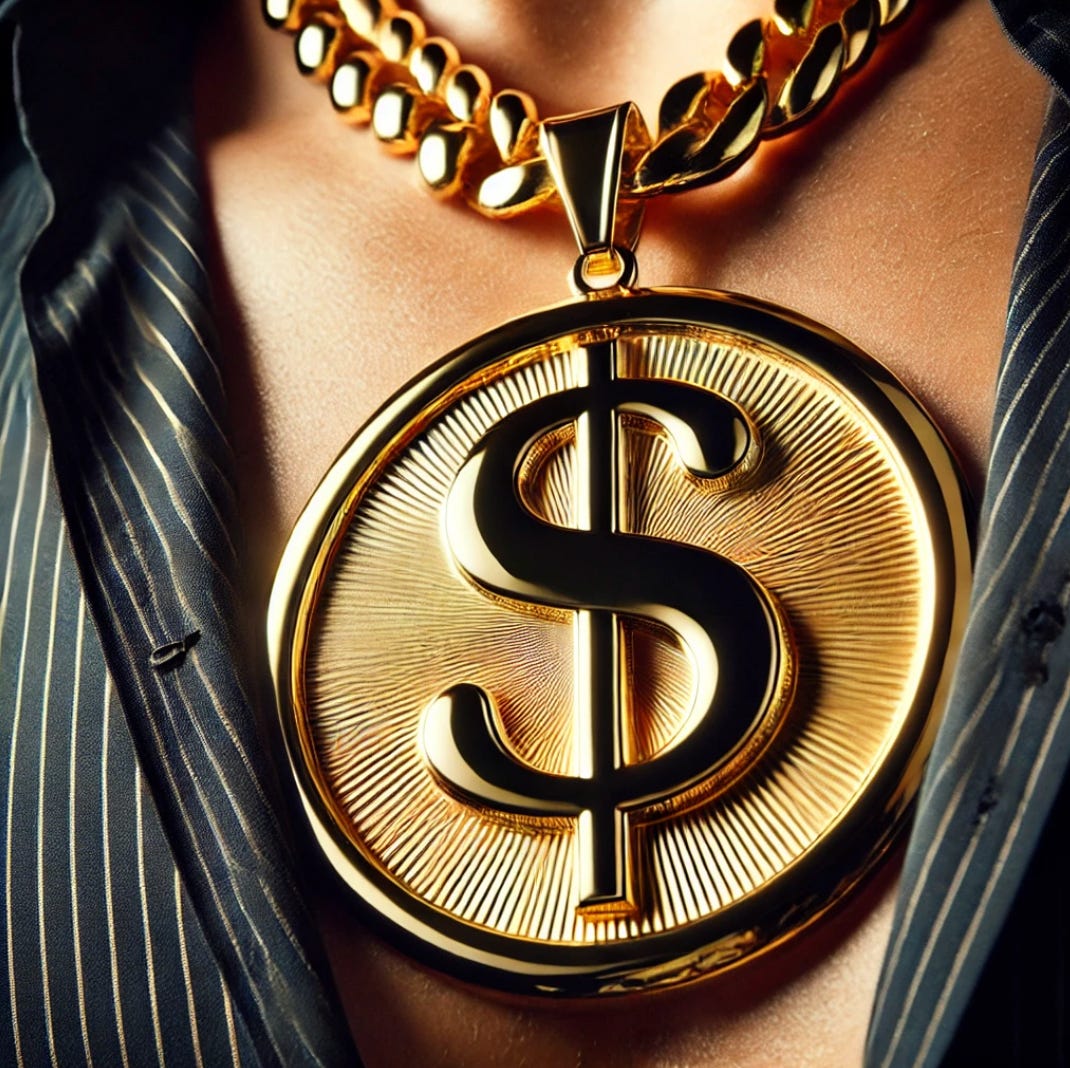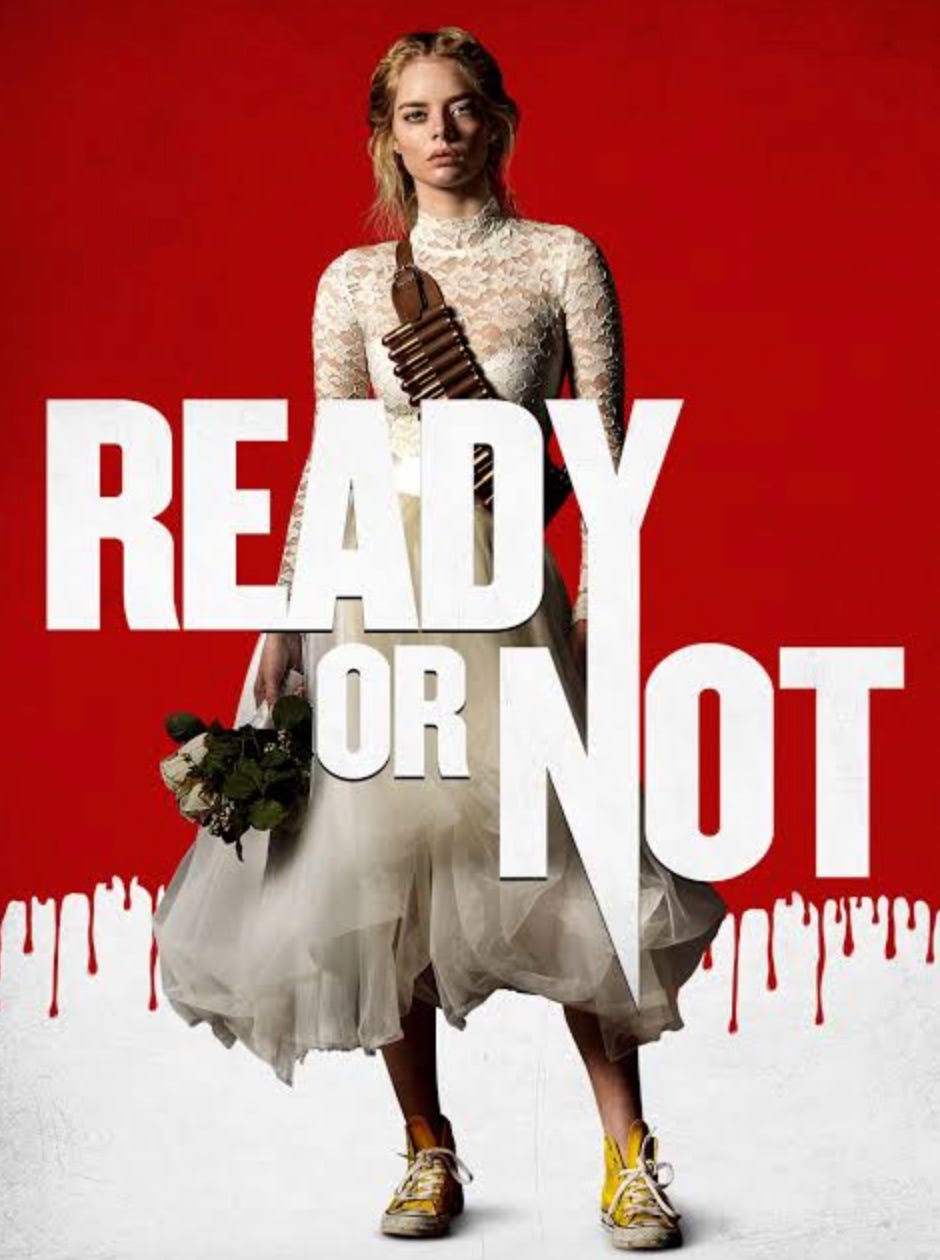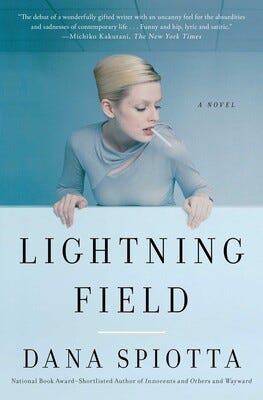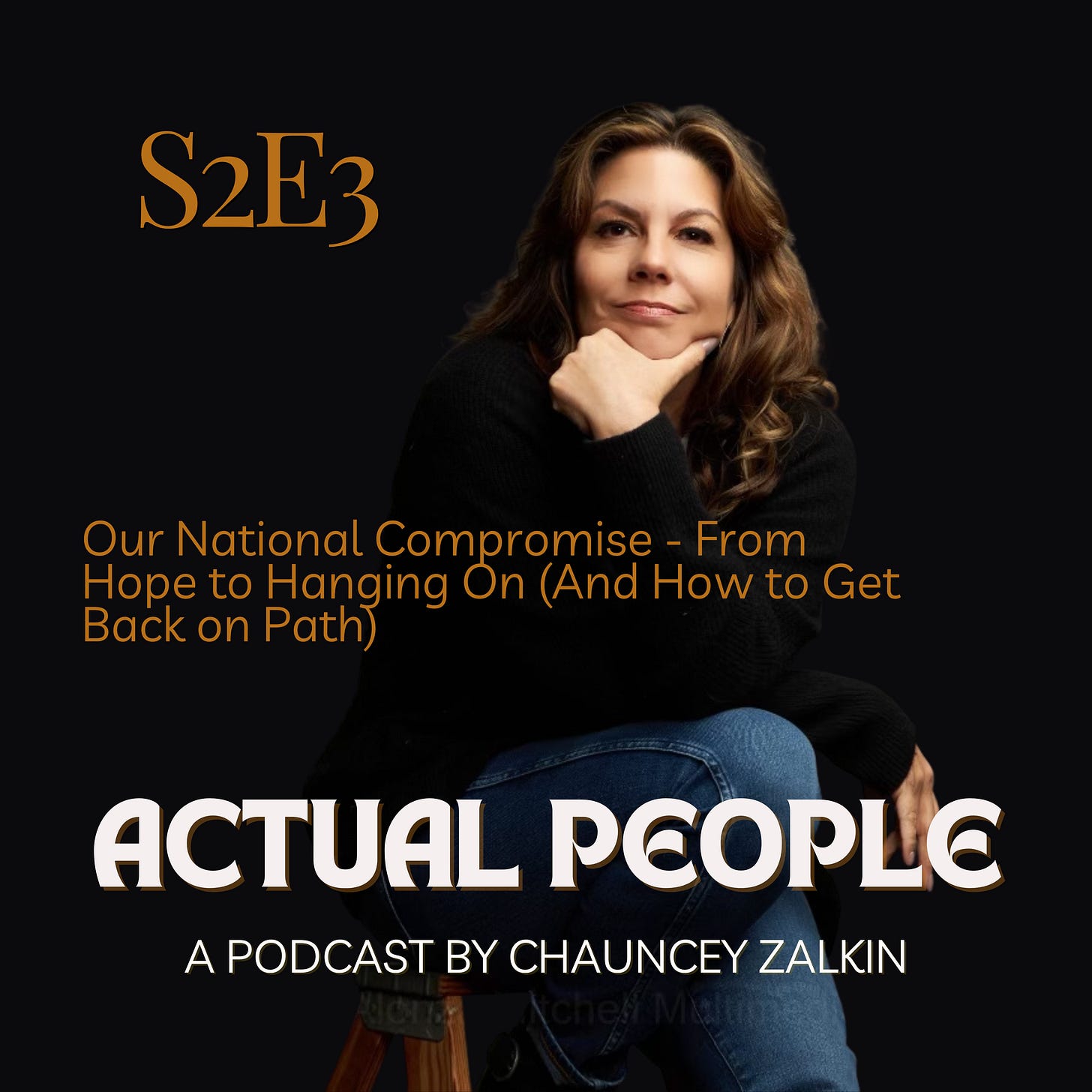A Private Earth for Me Me Me
Our Obsession with Wealth at The End of the World + Excerpt of S2E3 Our National Compromise + What I'm Reading, Watching, Listening To
I've been wondering what is it about wealth that mesmerizes us so much as a society. Is it this fantasy that the rich inhabit a private earth that's all their own? That they skip along at a higher effortless plane with thicker mattresses, quieter engines, more features. double stitching, triple ply knits, and better temperature control?
We think we need wealth just to stay above the waterline. We think if we cushion ourselves with enough wealth and technology that we’ll get above what is happening, but there is no above it. There is no above humanity. That's not the way out, not even for the very rich. Nobody gets out alive.
In S2E3 “Our National Compromise: From Hope to Hanging On”, I talk about the years after Obama and how we’re now okay with fracking and never hear about free education and universal healthcare. In S2E2, I talk with my guest about the voyeuristic pleasure and popularity of TV shows and movies that skewer the rich or expose the dark underbelly of their cloistered existence, shows like Succession and White Lotus or Saltburn with its eccentric twisted characters, and Triangle of Sadness with its comeuppance in the level playing field of being out in the wild. I list my favorite movies and TV shows about rich people including some observations of one particular actress who seems to have made this a genre specialty. Can you guess who that is?
And then last week, Jim Gaffigan spoke at the Catholic Al Smith Memorial Dinner and started with “Good Evening Rich People” standing in the middle of a dais of mostly white old men who either snickered or held their face in agonizingly stoic paralysis. Three seats to his left, next to the archbishop of New York, sat Donald Trump. It was the most uncomfortable sight to behold twenty days before the election. Not just because of the optics of the ‘poor man’s idea of a rich man’ and wouldbe fascist dictator seated among some of the more socially acceptable rich people normalizing him, but because of the blatant display of pandering to the rich as morally superior and somehow elevated above what is now a massive divide of rich and poor with a disappearing middle class clinging to some semblance of livability.
Our growing disparity makes us want to see the rich put in their place, while simultaneously wanting to be the rich and grasp onto anything that allows us to stem the tide of our sinking society. This scenario are not the building blocks to a peaceful equitable society. We’re at an impasse and a tipping point.
We look on at the rich as though we can relate even as we slip from any semblance of relating - as they get richer and things get more difficult for the rest of us.
Though the episode has a list of shows that directly examine the rich, pretty much all shows put them front and center. Last night I watched Ready or Not, a darkly comic bloodbath.
Laundry Folding TV
I also am only slightly ashamed to say my newest Laundry Folding Show is The Golden Bachelorette, another show that uses material wealth not just as a backdrop but evident accelerator to finding love. Dates are aided by helicopters, rent-a-yachts, and Porsches reflecting nothing like real life for these people. I watched the Golden Bachelor as a previous Laundry Folding Show and Love is Blind both killing brain cells and both incorporating make-believe wealth.
What I’m Reading
A very Play It As It Lays look at LA sadness and striving called Lightning Field by Dana Spiotta (not to take away from its own merit. She is a fantastic writer and observer of contemporary culture). From the Amazon summary. It explores “the consumerist fetishes, the self-obsession, and the possibility that you just might have gotten it all badly wrong.” I’m only a 1/3 of the way in so I’ll keep you posted.
Our National Compromise: A Reminiscence
When you talk to your kids about big grown-up subjects like politics and social structures, you have to put things into a context they can understand including the historical context. This forces you to do your own survey of the past for yourself. I was talking to my daughter on the way back from Krispy Kreme and we were talking about the Obama era and getting Kamala into office. How she had to say she was okay with fracking and that she felt she had to boast that she had a glock to even have a shot. I started to look back at that moment in history where we had all this hope and excitement. We had elected Barack Obama. He had a poise and dignity to him. He was plain spoken. He had that infectious optimism that we so desperately craved. One that did not accompany a snake oil salesman smile or gaslighting rhetoric. Not since Kennedy, and I didn’t live through Kennedy, did we have someone like that to set the national temperature. A true leader reflective of modern realities.
And then it all fell apart.
When Obama was elected, the population of this country had already been changing for quite some time. The white majority was disappearing. We were living in a post postmodernist world of multiculturalism and diversity. The blend of cultures were showing up in the foods we ate, the shows we consumed, fashion, art, music. We had just legalized gay marriage. Women were taking their seat at the table or creating a new table altogether for themselves.
Still women, always the most ahead and yet somehow pushed the most behind, were still struggling for visibility, metoo had not yet happened and we are still on that road, but in other areas, we had embraced reality. Realities like climate change.
Glocal was a thing. Do you remember that ? Global plus local? Paying attention to the local flora and fauna, small businesses, respecting nature, making sure your food was grown as close as possible to wear you bought it: We were making a conscientious effort to understand our sense of place in the physical environment. Even as technology was building on itself, we were bringing those ideas back into the fold. Progressive ideas seemed to be coming into the mainstream. We had to restructure education around a tech enabled world and climate change and the cultural makeup of this country. We were going to correct for wealth inequity. There was a lot of talk between 2005 and 2012 about design thinking and systems thinking and sustainability.
We were also embracing the handmade and natural materials, architecture and building that incorporated the landscape and smart cities. Airbnb took off making more human-centered travel accessible. There were start ups that served the digital nomad and freelance community like individualized health insurance and short term alternative and communal living solutions. You had visionary urban planners creating neighborhoods with edible gardens as the centerpiece. There was buzz around biomimicry, where we would look at how nature responded to its environment for cues on how to build new systems.
Then 2016 happened and hit us like a brick wall. Reminds me of one of those big red Dodge balls from my childhood that would just come right at you and hit you in the face and your face felt numb and disfigured. Such a weird sensation.
That was 2016 and ever after.
The pandemic felt a bit like a return. We regained a sense of organic community. Of oneness. People slowed down. They reached out for smaller, more intimate, experiences, because they weren't rushing everywhere all at once and the pace of Internet hell had slowed somewhat. Black Lives Matter roared back to life with the protests after George Floyd. People were really trying to come back to that period before Trump became president.
Back in 2012, I went to the Vermont Studio Center for a two week writers retreat. This was back before I was a parent. During those two weeks, I started to write a speculative novel. I was trying to explore what would happen 20 years down the line after the Obama administration. I had a whole utopian vision sketched out of what life would be like from that era on which was extremely optimistic. Some might say pollyannaish. In the story, there was a disgruntled group who missed their previous roles in society and felt aimless, directionless, and pissed.
They decided to rebel against this new world. In this new world, everyone worked with their family, friends, their found family. Smaller businesses and loose associations replaced big corporations. We all had universal healthcare. We were all educated and there was universal income. We weren’t hysterical over money because whatever we made was on top of the basic income. We all had enough to live. THat didn’t sit well with some people. Without purpose and a clear role, some people are uncomfortable having to carve their own path. It seems the very essence of conservatism before it went down the road to crazy town.
Everyone needs to feel like they belong and they know or can create a place for themselves. And there have been huge swaths of the population that had been left out of that conversation. It is no longer popular to be a white man in society. They're not getting the pats on the back they used to. That can be a very uncomfortable place to be.
Listen to the rest of Our National Compromise here.
And also out now, S2E4 an interview with founder of UK-based global creative platform “Creative Boom” about her own personal renaissance after injury and her forecast on the creative industry.
Please subscribe to Actual People wherever you get your podcasts and support my podcast, now 3 months shy of 1 year old. I love it and I know you will too. I talk to myself and to others about being female and 51, growing up in Miami in the 80s, NYC in the 90s and 00s, life as an expat, then single mom, twin mom, and all things Gen X, the creative industries, and culture. I have guests that are NPR hosts, fiction writers, tv writers, cultural critics, design minds, mission-based entrepreneurs, and more.
Here’s a link to the the latest episode on YouTube:









